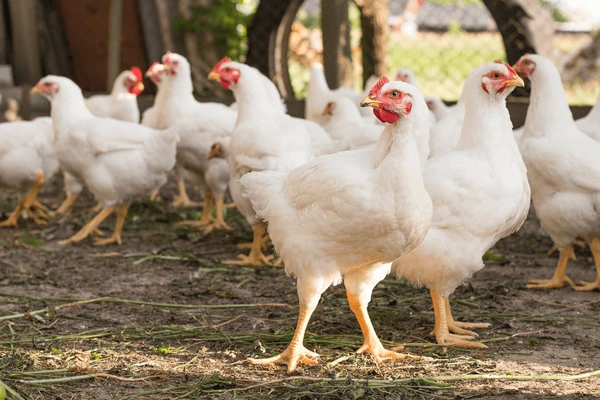The quest to optimize chicken growth has long been a focal point in the poultry industry, driving innovation and scientific discovery. Recent advancements in broiler genetics offer new insights into the mechanisms behind the rapid growth of modern chickens, shedding light on the genetic underpinnings of this remarkable phenomenon.
Broiler growth rates have witnessed significant improvements in recent decades, thanks to advancements in both genetics and nutrition. Researchers at the Poultry Science Department of Mississippi State University have been at the forefront of unraveling the genetic secrets that contribute to the impressive growth of broiler chickens.
Central to this research is the concept of genetic selection—a process akin to selective breeding in other animals. By carefully selecting and breeding chickens with desirable traits such as rapid growth and efficient feed conversion, breeders have been able to create strains of broilers that can reach market weight in record time.
A key component of this genetic selection process is the identification and utilization of specific genetic markers associated with desirable traits. Through meticulous breeding programs, scientists have been able to capitalize on the natural genetic variation present in chicken populations to enhance growth performance.
Moreover, the evolution of broiler genetics has been shaped by a deep understanding of quantitative genetics—the study of how traits are inherited and influenced by multiple genes. By leveraging this knowledge, researchers have been able to develop breeding programs that maximize the genetic potential of broiler chickens for growth and productivity.
In addition to genetic selection, advancements in nutrition have played a crucial role in supporting the rapid growth of modern chickens. Through extensive research, poultry nutritionists have formulated balanced diets that provide chickens with the nutrients they need to thrive and grow at optimal rates.
Contrary to common misconceptions, the impressive growth of modern chickens is not attributed to the use of hormones. In fact, hormone supplementation is illegal and not approved for use in poultry production in the United States. Instead, the remarkable growth of broilers is a testament to the power of genetic selection and advancements in nutrition.
The implications of these advancements extend beyond the poultry industry, offering valuable insights into the broader field of animal genetics and breeding. By unraveling the genetic mysteries behind chicken growth, researchers are not only enhancing the efficiency and sustainability of poultry production but also paving the way for future innovations in animal breeding and genetics.
In conclusion, the recent breakthroughs in broiler genetics offer a glimpse into the genetic mechanisms that drive the rapid growth of modern chickens. Through the careful application of genetic selection and advancements in nutrition, researchers are unlocking the genetic potential of broiler chickens, ushering in a new era of efficiency and productivity in poultry production.
Sources:

No comments:
Post a Comment